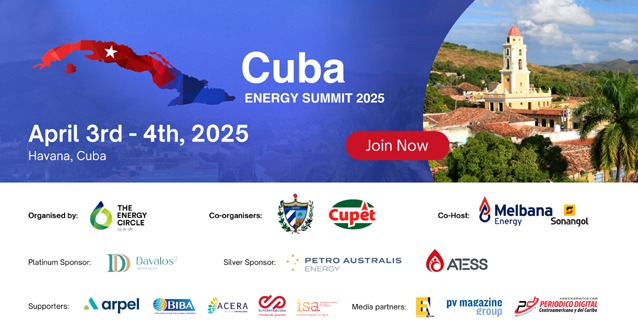
The vast majority of participants in Mexico’s presidential recall election yesterday, 92 percent, voted for President Andrés Manuel López Obrador to finish the rest of his mandate. But overall turnout for the vote, an unprecedented effort pushed by AMLO himself, was quite low at 18 percent, far below the 40 percent threshold required for the vote to be binding.
The overwhelming vote of support underlines AMLO’s domination of a polarized political agenda in Mexico, reports Reuters. While the affirmation of his mandate was a foregone conclusion — in fact, the opposition has not sought to end AMLOs term early — the president has used the referendum to fire up supporters and test his strength ahead of gubernatorial elections in June.
News Briefs
Peru
- The Inter-American Court of Human Rights says Peru ‘must refrain’ from releasing former President Alberto Fujimori from prison, where he is serving a 25-year prison sentence for massacres and other rights violations committed during his time in office. (Al Jazeera)
Brazil
- Former Brazilian President Luiz Inácio Lula da Silva chose former São Paulo state governor Geraldo Alckmin to be his running mate in October’s presidential election, on Friday. Leftist Lula and center-right Alckmin have a long history of political friction — Lula’s vice presidential choice is aimed at broadening his appeal to centrist voters. (Associated Press, Reuters)
- “The sealing of this agreement with Alckmin is a demonstration of the effort to build the best in Brazilian politics so that we can win the 2022 elections,” Lula said. Workers’ Party chairwoman Gleisi Hoffmann said da Silva, Alckmin and other anti-Bolsonaro parties and politicians will launch a movement at the end of April to show the coalition against the president is reaching out beyond Brazil’s left. (Associated Press, Reuters)
- President Jair Bolsonaro said today that there is a 90% chance he will select former Defense Minister Walter Braga Netto, a retired army general, as his running mate in this year’s election. (Associated Press)
Chile
- Fake news is a major issue ahead of Chile’s upcoming plebiscite on whether to adopt a new magna carta being drafted by a Constitutional Convention: 58 percent of people have read false information about the new constitution, most on social networks, according to a new poll by Derechos Digitales and Datavoz. (El Mostrador, see today’s Chile Constitutional Updates)
- About half of Chileans would support a third option in the plebiscite, that would permit a constitutional reform through Congress, discarding the text from the Constitutional Convention. (Cooperativa, see today’s Chile Constitutional Updates)
- This week the Convention will debate a proposal for an attenuated presidential system with an asymmetric bicameral congress. (La Bot Constituyente)
- The proposal would eliminate the Senate. Instead congress would be dominated by the Chamber of Deputies (Diputadas y Diputados, with gender parity) and a Chamber of the Regions that would represent the different territories in the legislative discussion, reports El País. (See today’s Chile Constitutional Updates)
- Critics have voiced concern that the structure could debilitate legislative checks and balances, by concentrating power in the Chamber of Deputies, reports the BBC. (See today’s Chile Constitutional Updates)
Haiti
- Going to court in Haiti has become so dangerous for lawyers that they avoid it altogether: at one lower-level tribunal no hearings or trials have been held for months, reports AFP. Lawyers are demanding, among other measures, that the government move the Palace of Justice, which is right next to a slum dominated by Haiti’s most powerful gangs.
Migration
- An influx of migrants by boat in the U.S. Florida Keys represents a shift in migration patterns: The U.S. Coast Guard has been intercepting about four Haitian migrant vessels per month at sea, each with an average of about 150 occupants on board. Coast Guard crews have interdicted 2,953 Haitian migrants at sea since the start of the federal fiscal year on Oct. 1, nearly 1,500 more Haitians than were picked up at sea last year, reports the Washington Post.
Honduras
- An Honduran judge ordered the extradition to the United States of the country’s former national police chief, Juan Carlos Bonilla Valladares, on drug trafficking and weapons charges. Better known as “El Tigre,” he faced allegations of human rights abuses during his time in command, reports the Associated Press.
- Honduras Prospera, an Honduran special economic zone (ZEDE) has adopted bitcoin and other cryptocurrencies as legal tender. (Reuters)
Regional Relations
- AMLO said on Saturday that Mexico does not accept the Russian invasion of Ukraine in a video message released to coincide with a global event in support of Ukrainian victims of the conflict. (Reuters)
- Venezuelan President Nicolás Maduro denounced a Western alliance he said is aimed at dismembering Russia, and refused to join the global chorus of condemnation of the invasion of Ukraine and alleged killings of civilians there, reports EFE.
Colombia
- Colombian presidential candidate Gustavo Petro said criminals are plotting to put dirty money into his campaign. “We have information of a plan cooked up in prisons to infiltrate my campaign with money from drug-trafficking,” Petro said in a post on Twitter. (Bloomberg)
Ecuador
- Former Ecuadorean vice president Jorge Glas was released from prison yesterday, after a judge ruled his physical and psychological well-being were at risk. (Reuters)
- Ecuadorean authorities raided the office of Swedish cyber security expert Ola Bini, WikiLeaks founder Julian Assange’s friend, facing allegations of illegal access to the country’s computer systems. (EFE)
Latin America Daily Briefing —
http://latinamericadailybriefing.blogspot.com












